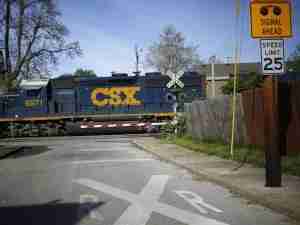California judge throws out lawsuit targeting crude by rail facility
By: Reuters | Sep 07 2014 at 09:52 AM | Intermodal
A San Francisco Superior Court judge dismissed a lawsuit brought by environmental groups against Kinder Morgan’s Richmond, California, rail terminal, which quietly began unloading crude oil from trains this year, saying the plaintiffs waited too long to file their complaint.
The groups argued that since the company was given permission from regulators to begin accepting the deliveries without public notice, they were not immediately aware of the change.
Judge Peter Busch acknowledged there were “deep concerns” about the new cargo, which passes through the densely populated city of Richmond, but said the plaintiffs missed the 180-day window to request that the permit be revoked.
Suma Peesapati, an attorney for the environmental groups that brought the suit, said the company and regulators knowingly deceived the public.
“This is just how the agencies and industry win - hide the information, make the change under the cover of night, and hope people don’t notice while the clock winds down on any hope to stop these dangerous and callous developments,” she said.
Kinder Morgan and the regulator, the Bay Area Air Quality Management District, said they followed the law as written and denied doing anything in secret. California law does not require public notification or an environmental review for the permit, which was issued in February.
Friday’s ruling was met with hisses from environmentalists who attended the hearing, some of whom participated in a protest the previous day where they chained themselves to a fence at the facility.
The Kinder Morgan terminal is the most substantial oil-by-rail facility in the state, handling up to 72,000 barrels per day. The crude is unloaded from incoming trains and placed on trucks bound for a Tesoro-owned refinery in Martinez.
The number of trains ferrying crude oil by rail to California from Canada and North Dakota’s Bakken shale formation has jumped dramatically in recent years, prompting safety and environmental concerns.
In July 2013, a train carrying crude oil derailed and exploded in a town in the Canadian province of Quebec, killing 47 people. (Reuters)






